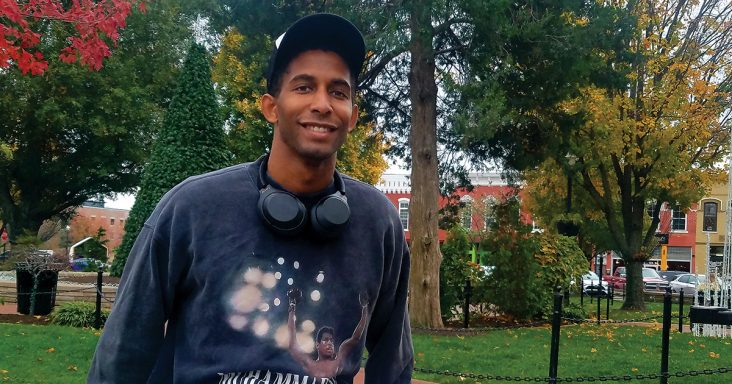Bentonville entrepreneur’s healthcare engagement platform Sober Sidekick featured in Harvard Business School curriculum
by October 12, 2023 10:47 am 1,566 views

Chris Thompson is the CEO and founder of Sidekick Mobile Technologies, creators of Sober Sidekick, a sobriety and recovery app on iOS and Android for people struggling with addiction or recovering from alcohol or drug abuse.
In September, Bentonville entrepreneur Chris Thompson was a guest speaker for three classes full of students at Harvard Business School, the graduate business school of Harvard University.
Thompson is the CEO and founder of Sidekick Mobile Technologies, creators of Sober Sidekick. Backed by the American Heart Association as lead investor, Sober Sidekick is a healthcare engagement platform designed to help those struggling with substance abuse maintain their sobriety.
Senior lecturer Jeff Bussgang and case researcher Kumba Sennaar wrote a case study on Sober Sidekick and are including the research in the school’s Launching Tech Ventures course. It’s a five-week program that helps early-stage tech startups overcome management challenges across all aspects of a business model.
“We did 10 interviews for the case study, and it got published in July,” Thompson said. “It’s part of their curriculum indefinitely, and I’ll get to come back again next year.”
The researchers describe their curriculum as: “Case on the nascent business model of a mobile health IT startup. In particular, should they pivot away from their successful lead generation business model to charging health plans?”
Inspired by his struggles, Thompson, 29, launched the app in January 2019, just a few months after ending five years of alcohol addiction. A Pennsylvania native, he relocated to Northwest Arkansas from Los Angeles in early 2022.
Thompson crafted an empathy algorithm to help Sober Sidekick “meet the right people at the right time.” It ensures that no member ever goes without support from their community for more than a few minutes if not seconds. The goal is to escape isolation, set out on the path to recovery and avoid relapse.
The case study examines a crucial business decision Thompson made two years ago. Initially, the business model was to have treatment center clients paying Sober Sidekick a flat monthly rate to access the platform.
Sober Sidekick worked diligently on a plan to shift away from that and instead focus on collecting behavioral health data that they could use to charge insurance companies.
Having bootstrapped the business for three years, Thompson had been seeking funding to provide the resources to pivot the model.
“The decision was [to] walk away from our first and only revenue model at the time,” he explained on LinkedIn. “We had bootstrapped to almost a million ARR [annual recurring revenue] but had realized that this model [was] deeply in conflict with our values. We realized that if we took in venture capital while addiction treatment centers were our primary revenue source, our members’ success would forever conflict with our investors’ returns.”
Thompson said he wanted member success outcomes to sustain Sober Sidekick more than treatment admission and relapse. He explained that the decision was confusing to most VCs, “but we knew there had to be a way to align community, engagement and health outcomes to build a model that succeeds when our members stay sober.”
Within its first year, Sober Sidekick had 5,000 downloads. In 2020, that number had grown to 10,000. Thompson said the app is gaining about 700 members daily and is approaching 300,000 downloads.
It’s available for download on iOS and Android devices.
“We don’t have all the answers,” Thompson said. “But we know that healthcare must become driven by consumer outcomes, not private equity and provider returns.”
